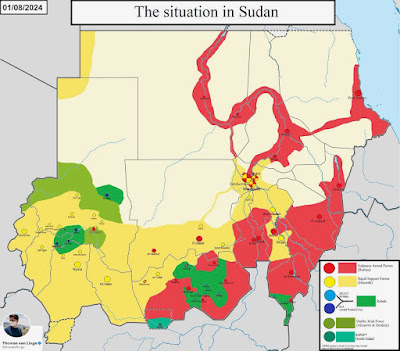“THE situation in health clinics is beyond words,” said Amelie Chbat, who oversees health programs for the ICRC in Sudan, adding “The injured lack medicines, food, and water, and the elderly, women, and children are without essential treatments like dialysis or diabetes medications. And the situation is deteriorating.” Full story here below.
Sudan’s man-made mass-deaths must & can stop:
— Jan Egeland (@NRC_Egeland) August 9, 2024
NRC meets women who flee their homes under gunfire; pregnant women walking for days without shoes; people selling everything just to eat.
If nothing changes countless communities in Sudan will starve to death
NRC's @WillCarter_NRC⬇️ pic.twitter.com/1tt6DLin05
Dated Thursday, August 8, 2024
Their ability to function is vital for the most vulnerable, including pregnant and lactating mothers and children under the age of five.
“The situation in health clinics is beyond words,” said Amelie Chbat, who oversees health programs for the ICRC in Sudan, adding “The injured lack medicines, food, and water, and the elderly, women, and children are without essential treatments like dialysis or diabetes medications. And the situation is deteriorating.”
The number of reports of looting and vandalizing healthcare facilities, threats and physical violence against staff and patients, and the denial of healthcare services to civilians is reportedly increasing. In addition, it stated, fighters and civilians die because they are prevented from receiving medical attention in time.
According to the aid agency, the entire communities are cut off from vital services, such as maternity care, childcare, and vaccinations due to the conflict.
The ICRC reminded the parties to the conflict that such actions will have severe and long-lasting consequences for the entire Sudanese population and that protecting healthcare is an obligation under international humanitarian law.



